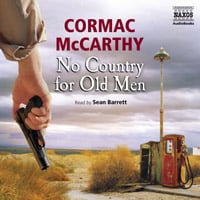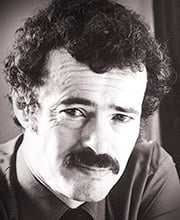The NAB Blog
20th century and proud of it
By Nicolas Soames
1 November 2009
I sometimes look at our release schedules, and even the entire Naxos AudioBooks catalogue, and I wonder at the rationale behind it all. Classics, of course! But this covers such an immense range that they almost cannot usefully be mentioned in the same breath.
For example, take the two great 20th-century classics that we release this month: The Master and Margarita and The Leopard. How different they are!
Bulgakov’s satire on Soviet life was finished just before World War II. It has the ‘feel’ of a novel written much later – certainly when compared to another Russian novel of around the same period, Sholokhov’s And Quiet Flows the Don, which follows the tradition of the great Russian epics. The Master, especially in the really imaginative and free-flowing reading by Julian Rhind-Tutt, is far more akin to Flann O’Brien’s The Third Policeman, even though there the pace and humour is decidedly Irish (especially in the Jim Norton reading)!. You could have a lot of fun listening to one followed by the other.
McCarthy is ‘literary’ en route to ‘classic’
The Leopard, on the other hand, is more in the tradition of the 19th-century novel rather than the 20th. Lampedusa’s nostalgic view on the demise of a Sicilian aristocratic family, as Garibaldi urges Italy towards unification, has a decidedly autumnal feel. It comes as a surprise to note that it was begun after the conclusion of World War II and published posthumously as late as 1958. Time is not necessarily an indicator of style!
I mention this because in the last couple of weeks I have also lived in the 20th century in other ways. I saw the fine Glyndebourne production of Janáček’s Jenůfa under the young conductor Robin Ticciati. This remarkably moving work (the composer’s first opera, premiered in 1904) has a sound-world which is definitely 20th century (what an individual sound palette he produced!) yet the subject matter is immured in the mores of traditional village life. The contrast of subject and language makes the suffocating environment of village life (in this case!) even more affecting – the conflict in itself, perhaps, indicating the social changes to come.
Then, crikey Moses, another shift of perspective: I read Georgette Heyer’s Venetia! This advance notice here! we are issuing next year. With my personal background in judo and contemporary music, I didn’t think that I would last very long in pastiche Regency romances… but what fun Cotillion (read by Clare Wille) and Sylvester (read by Richard Armitage) have been! And Venetia is more of the same… for Georgette Heyer was a mistress at fashioning a jolly good yarn within the boundaries of propriety. Or maybe. Venetia starts with my favourite Heyer sentence:
“ ‘A fox got in amongst the hens last night, and ravished our best layer,’ remarked Miss Lanyon.”
I knew we were on to a good’un after reading that line. And what a fox Lord Damerel turns out to be.

Then, there arrived in the office the first delivery of our new recording of McCarthy’s No Country for Old Men. I couldn’t resist having another listen to it, though it is about as far from Georgette Heyer as can possibly be.
Violent, yes; but what remarkable language, and tension beyond belief. I had recently, on a flight, polished off one of Lee Child’s Jack Reacher thrillers, which was also violent and a page-turner… but in a manner that I felt exploitative. I was being manipulated to turn those damn pages… and I just wanted to finish it as soon as possible.
McCarthy, however, is ‘literary’ en route to ‘classic’, unremittingly bleak though he may be. And this is underlined in the recording.
It has become so common for English, American and Australian actors to transplant themselves to different countries with appropriate accents that I scarcely hesitated in acceding to the personal request of William Anderson, who runs Naxos AudioBooks in the US, for the outstanding Irish actor Sean Barrett to read No Country for Old Men. If he can do the panoply of Dickens’s characters (have you heard his Bleak House??) then Texan ain’t difficult. Above all, of course, he makes characters live.
Hearing him in the studio doing the most frightening hit man of all time (Anton Chigurh), the Sheriff who for the first time finds himself out of his depth, and the hunter Moss (who becomes the hunted), as well as the myriad other characters, it was clear that Sean remains at the peak of his powers.

Sean Barrett
Appropriately, Sean is very laid back. He lives in North London, about 30 minutes’ walk from the studio. He leaves his house at 9am, and, rain or shine, in a mackintosh worthy of Colombo, he weaves his way through the pleasant streets of Hampstead to arrive at the studio full of fresh air and eager to start. All his careful preparation has been done, so his satchel is light the script is left in the studio, which pays dividends when he is reading Dickens. Whether, when tramping the pavement, he replays the characters of John Jarndyce or Mr Tulkinghorn on his way to Bleak House, or Sheriff Ed Tom Bell or Anton Chigurh on his way to No Country, I do not know. Maybe he just muses. I must ask him, one day.
Suffice to say that when he settles himself in front of the microphone, he is that book. For me, Sheriff Ed Tom Bell looks like Tommy Lee Jones, but he sounds like Sean Barrett.
For a totally different take on Cormac McCarthy, pop over and listen to Jim Crace’s six-minute satire on Blood Meridian. If you have listened to our chilling recording read by Robert G. Slade, you may enjoy the relief of Crace’s lampoon, though it will never dispel the power of the original!
And there we are, back with satire which is where we started!
Nicolas Soames
« Previous entry • Latest Entry • The NAB Blog Archive • Next entry »